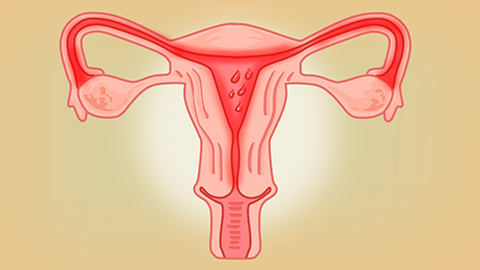What are the symptoms of uterine polyps?
Generally, endometrial polyps are protrusions formed by localized excessive growth of the uterine lining. Their symptoms mainly include abnormal uterine bleeding, prolonged menstrual periods, intermenstrual bleeding, increased menstrual flow, and abnormal vaginal discharge. A detailed explanation is as follows:

1. Abnormal uterine bleeding: Patients may experience uterine bleeding outside of their menstrual period. The bleeding occurs irregularly, sometimes presenting as light spotting and sometimes as heavier bleeding similar to menstrual flow. This type of bleeding is related to the disruption of normal endometrial shedding caused by the polyps and may last for several days or even weeks.
2. Prolonged menstrual periods: Normal menstrual periods typically last 3–7 days. Endometrial polyps can extend the duration of menstruation to more than 10 days. The bleeding may taper off slowly, with lighter flow in the later stages but lasting longer, significantly increasing the total bleeding time throughout the menstrual cycle.
3. Intermenstrual bleeding: Vaginal bleeding may occur around the midpoint of the menstrual cycle, around the time of ovulation. The bleeding is usually light and often appears bright red or dark red, stopping spontaneously after 2–3 days. This phenomenon is associated with hormonal fluctuations that stimulate the polyps.
4. Increased menstrual flow: Some patients may experience heavier menstrual bleeding, characterized by a明显 increase in total blood loss during each period. This results in more frequent changes of sanitary products and may involve small blood clots in the menstrual blood. The increased bleeding is due to the enlarged surface area of the endometrium caused by the presence of the polyps.
5. Abnormal vaginal discharge: If the polyps are accompanied by infection, abnormal vaginal discharge may occur. This may manifest as increased discharge volume, yellow or purulent color, thick consistency, and a noticeable foul odor. In severe cases, the discharge may contain visible blood streaks.
If any of the above symptoms appear in daily life, maintaining regular作息 habits, practicing good personal hygiene, and avoiding excessive fatigue can help reduce irritation to the endometrium. Regular monitoring of physical changes also contributes to maintaining reproductive health.




